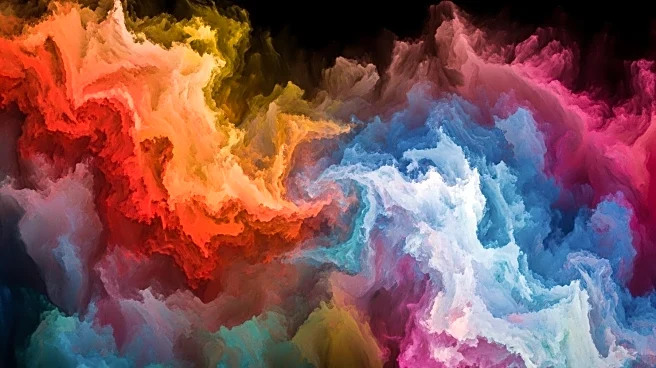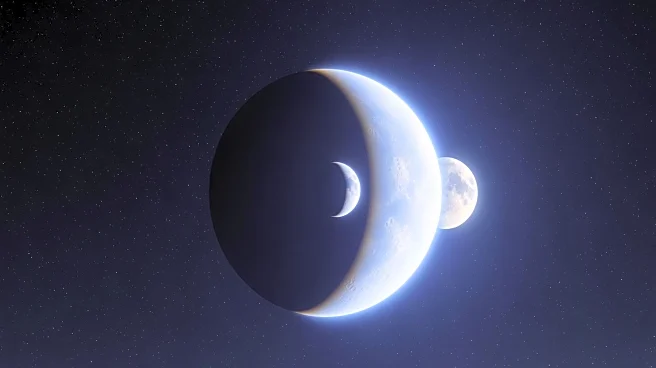What is the story about?
What's Happening?
During the Venice Film Festival on September 3, 2025, director Julian Schnabel made headlines by rejecting calls to boycott artists with ties to Israel. The controversy arose when activists urged the festival to disinvite stars Gal Gadot and Gerard Butler due to their support for Israel. Schnabel, promoting his film 'In the Hand of Dante,' stated, 'There's no reason to boycott artists,' emphasizing his choice of actors based on merit rather than political affiliations. This statement ignited a viral debate, with major outlets like Variety and Deadline covering the incident extensively. The film received a 9.5-minute ovation at its premiere, highlighting the divide between artistic appreciation and political activism.
Why It's Important?
The incident underscores the ongoing tension between art and politics, particularly in high-profile cultural events like film festivals. Schnabel's refusal to engage in geopolitical discussions raises questions about the role of artists and filmmakers in political discourse. The polarized reactions reflect broader societal debates on whether cultural platforms should remain neutral or take a stand on political issues. This situation impacts the film industry, as it navigates the complexities of global politics and artistic expression. Stakeholders, including filmmakers, actors, and festival organizers, face challenges in balancing creative freedom with social responsibility.
What's Next?
The Venice Film Festival's response to this controversy may set precedents for future events. Organizers might implement strategies to address political activism while maintaining artistic integrity. Filmmakers and actors could face increased scrutiny regarding their political affiliations, influencing casting decisions and festival invitations. The debate may prompt discussions within the industry about the ethical responsibilities of artists and the extent to which political views should influence cultural participation.
Beyond the Headlines
This incident highlights the ethical dilemma of separating art from the artist's political stance. It raises questions about censorship and the potential silencing of voices in the name of political correctness. The festival's handling of the situation could influence public perception of cultural events as platforms for free expression or political advocacy. Long-term, this may affect how audiences engage with art and the expectations placed on artists regarding their political beliefs.














